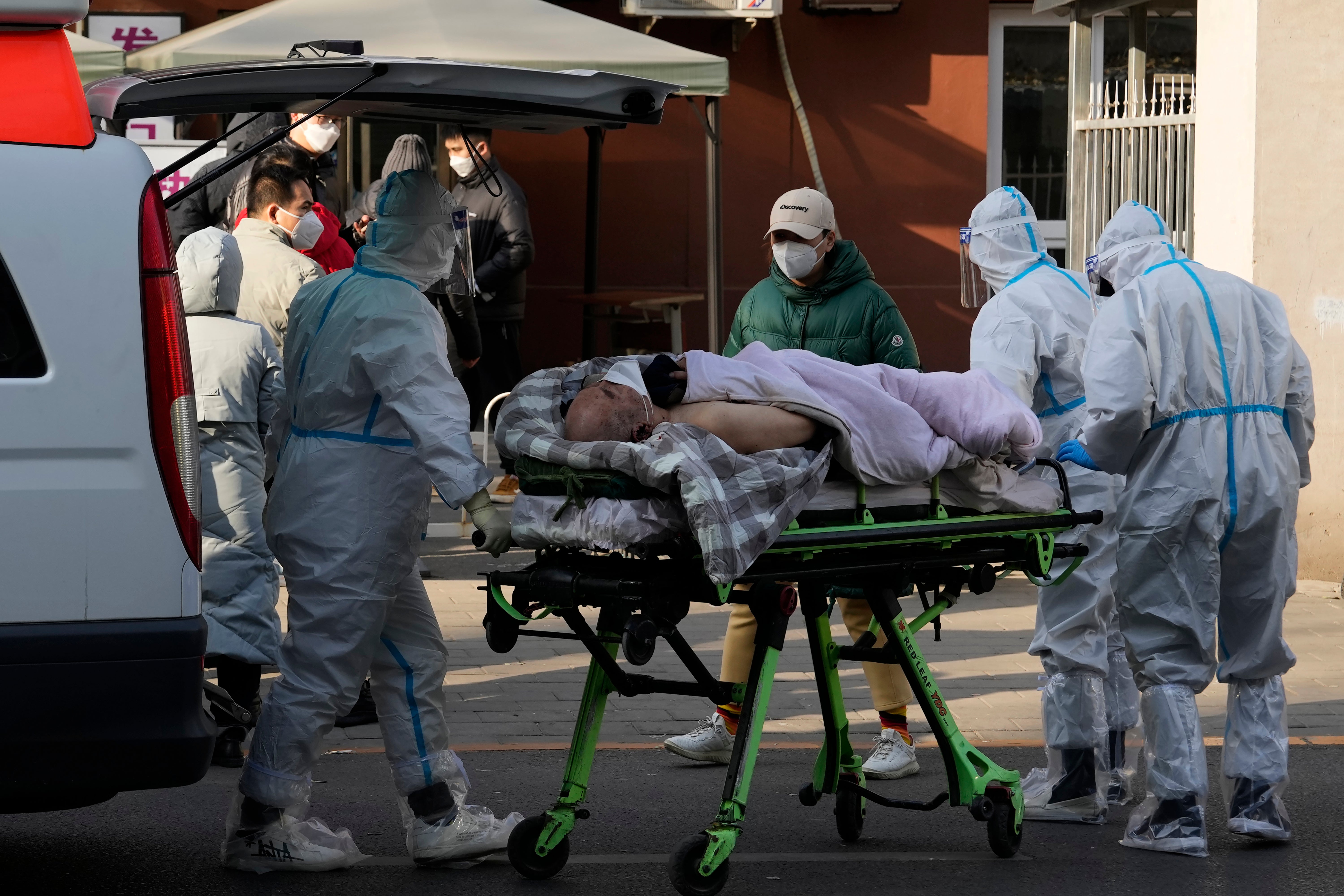Social media users in China report a surge of COVID-19 cases in schools and businesses after the ruling Communist Party eased restrictions against the virus in a bid to reverse a deepening economic recession.
Social media users reported a surge of COVID-19 cases in schools and businesses across China on Friday after the ruling Communist Party eased restrictions against the virus in a bid to reverse a deepening economic recession.
Official data showed a drop in new positives but no longer covers much of the population since the government ended mandatory virus tests for many on Wednesday. This measure was part of the drastic changes that seek to gradually abandon the strict “zero COVID” policy, which has confined millions of people to their homes and sparked protests and calls for the resignation of President Xi Jinping .
Netizens in Beijing and other cities posted that co-workers or schoolmates were sick and that some businesses were closed due to lack of staff. It was not clear, based on those reports, many of which could not be independently verified, how much above the official data the actual number of cases might be.
“I am really speechless. Half of the people in the company are sick, but they don’t let us stay home,” said a post signed by Tunnel Mouth on the popular Sina Weibo platform. The user did not give his name and did not respond to questions sent through the platform, which said it was in Beijing.
The reports are reminiscent of the situation in the United States , Europe and other economies, which have fought various outbreaks while trying to recover business activity. But they are a shocking change in China, where the “zero COVID” plan, which aims to isolate all positives, has disrupted daily life and depressed economic activity, while keeping contagion levels low.
Xi’s government began easing the measures on November 11, after promising to reduce their cost and the disruption they caused. Imports plunged 10.9% from a year ago in November, in an indication of weak demand. Car sales contracted 26.5% in October.
“Relaxing controls against Covid will lead to bigger outbreaks,” Neil Thomas and Laura Gloudeman of the Eurasia Group said in a report. “But it is unlikely that Beijing will again resort to the prolonged general lockdowns that have plunged the economy to beginning of the year.”
The changes suggest the ruling party is softening its goal of preventing transmission of the virus, which was the basis of its strict protocol, but officials say the strategy remains in place.
According to public health experts and economists, the restrictions could remain in force until at least mid-2023. Millions of the elderly will have to be vaccinated, which will take months, and hospitals will have to be reinforced in the face of a rebound in infections, they added. The authorities announced a vaccination campaign last week.
The Chinese government reported 16,797 new cases on Friday, of which 13,160 were asymptomatic. The data represents a reduction of one fifth compared to the previous day, and is less than half the daily peak of last week, which exceeded 40,000 cases.
The changes follow protests that broke out on November 25 in Shanghai, Beijing and other cities over the human cost of government policy.
It was not clear if any of the changes were a response to the demonstrations, which stopped after a crackdown by security forces.

